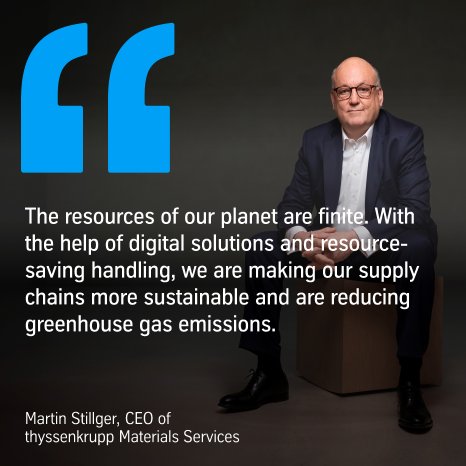"Earth Overshoot Day brings to mind how urgently we need to act together to move this day back. Clear priority is to reduce greenhouse gas emissions. For companies, the commitment to reduce greenhouse gases does not end at their factory gates. It is much more important to reduce all emissions along their supply chains – from Scope 1 to Scope 3. The fundamental prerequisite is to create transparency about their emissions.
Digitalization is a key lever for this: for example, AI-supported tools provide highly accurate forecasts that can be used to avoid incorrect deliveries, minimize inventory and storage costs and reduce transport. In addition, solutions such as emission calculators offer transparent insight into the totality of emissions associated with a product. This reveals potential savings.
Nevertheless, emissions will continue to be produced. To conserve our planet's resources, we must pull out all the stops. Proactive measures to reduce or completely avoid greenhouse gases must take center stage. They can be further supported by carbon offsets and carbon capture and storage technologies. Only if we as an industry understand sustainable business in a holistic way and act accordingly, can we help push back the earth's overshoot day."
As the largest mill-independent materials distributor and service provider in the Western world, thyssenkrupp Materials Services consumes resources to store, process and transport its products. At the same time, the company is working on solutions that create transparency in supply chains and reveal potential emission savings. The goal: to contribute to a world in which resources are used in the best possible way. To this end, the company takes responsibility with its own sustainability strategy "BEYOND", which is guided by international ESG standards. Additionally, thyssenkrupp Materials Services identifies further fields of action and supports its more than 250,000 customers worldwide in achieving their climate goals. Part of the sustainability strategy is the goal of climate reaching neutrality by 2030 – the company has already been able to reduce more than 32% of direct emissions from business operations (compared to the base year 2017/18).


